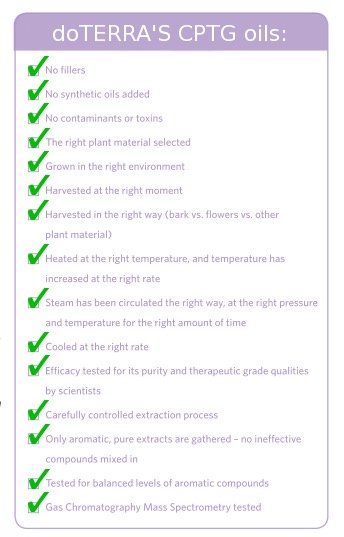There are so many essential oil brands out there, so why do you only work with dōTERRA??
This is a great question!! You probably might think that one lavender is the same as the next one, but plant chemistry matters.
The essential oil industry, sadly, is not regulated, and the only requirement for an essential oil to be labelled pure is it containing a single drop of pure oil. Research and third party testing has shown that:
77% of essential oils are actually synthetic, meaning they were created in a lab and do not contain any plant chemistry
22% of essential oils are adulterated or contaminated, meaning a mix of synthetic and natural, which alters the plant chemistry
Leaving just 1% of essential oils being actually pure.
After many hours of research and investigation, the only essential oil brand that consistently delivered pure and unadulterated essential oil was dōTERRA.
As a healthcare professional I cannot recommend anything but the best botanical medicine for my clients.
doTERRA uses a rigorous quality testing protocol called CPTG (Certified Pure Tested Grade) to ensure its essential oils are pure, potent, and safe:
Organoleptic testing: Using human senses (sight, smell, taste, and touch) to assess the oil's appearance, odor, and texture.
Microbial testing: Analyzing the oil for the presence of bacteria, fungi, viruses, and mold.
Gas chromatography: Separating the oil's individual components to identify and analyze them.
Mass spectrometry: Determining the oil's composition by ionizing and analyzing its constituents.
Fourier-transform infrared spectroscopy (FTIR): Identifying the molecular structure of the oil.
Chirality testing: Ensuring the correct chemical structure of the oil molecules.
Isotopic analysis: Analyzing the atomic composition of the oil to determine its source.
Heavy metal testing: Checking for the presence of toxic heavy metals.
Other tests: doTERRA also tests for adulterants, fillers, and other contaminants that could reduce the oil's efficacy.


